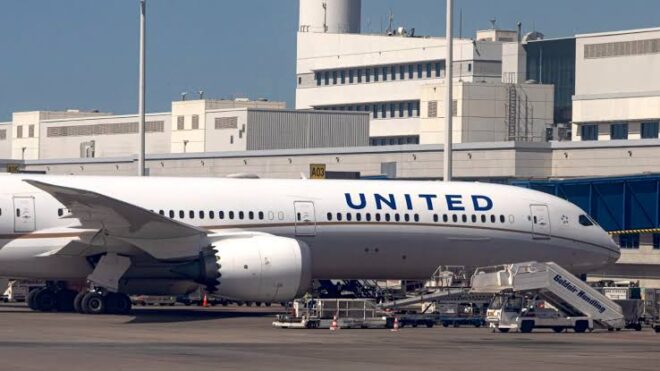
A United Airlines flight en route from Chicago O’Hare International Airport to Seattle-Tacoma International Airport faced an unexpected and alarming situation. United Flight 2901, an Airbus A320, experienced an engine fire that prompted immediate emergency responses and temporarily halted arrivals at one of the busiest airports in the United States.
The incident occurred around 2 p.m. CT, as the aircraft was ascending to its cruising altitude. Passengers on board reported hearing unusual noises and feeling a sudden jolt, which was soon followed by an announcement from the flight crew indicating that there was an issue with one of the plane’s engines. Preliminary findings from the Federal Aviation Administration (FAA) confirmed that the crew reported an engine fire, a rare but serious occurrence that necessitated an immediate return to the airport.
United Airlines, headquartered in Chicago, quickly confirmed the issue, stating that the local ground crew and emergency responders acted promptly to address the situation. The aircraft was met by fire and medical personnel upon its return to the airport. Although the presence of emergency vehicles may have alarmed some passengers, United emphasized that this response was purely precautionary. “The Airbus A320 was towed to the gate where passengers safely deplaned,” the FAA noted in its initial report. This cautious approach ensured that any potential risks were minimized and that passengers and crew were kept safe.
Despite the frightening circumstances, all 148 passengers and 5 crew members on board were unharmed. United Airlines expressed relief that no injuries were reported and credited the professionalism of the flight crew and the quick response of emergency personnel for the safe outcome. The airline also took immediate steps to accommodate the affected passengers, working on alternate travel arrangements to ensure they reached their destinations with as little disruption as possible.
The incident had broader implications for operations at Chicago O’Hare International Airport, one of the nation’s busiest hubs. The FAA, in response to the emergency, temporarily halted all inbound flights to allow for a thorough assessment of the situation and to clear the airspace for emergency operations. This 45-minute pause in arrivals led to significant delays, with one in four flights into O’Hare delayed throughout the day. The ripple effect of these delays was felt across the country, as O’Hare is a major connecting hub for domestic and international flights.
For many passengers, the incident served as a stark reminder of the importance of safety protocols and the rigorous training that flight crews undergo to handle such emergencies. While the experience was undoubtedly unsettling, the professionalism displayed by both the flight crew and ground personnel ensured that the situation was managed effectively, preventing what could have been a much more serious incident.
United Airlines, like all major carriers, has stringent maintenance and safety protocols in place to prevent engine failures and other mechanical issues. However, even with the best precautions, incidents like this can occasionally occur. The FAA has launched a thorough investigation into the cause of the engine fire, which will involve examining the aircraft’s maintenance records, interviewing the flight crew, and analyzing data from the plane’s flight recorders. The results of this investigation will help determine whether any additional safety measures or procedural changes are necessary.
In recent years, there has been growing concern about the impact of climate change on air travel, particularly with regard to turbulence and other weather-related phenomena. While the engine fire on United Flight 2901 was not related to weather, it occurred against a backdrop of increasing scrutiny on aviation safety. Turbulence, for example, has become more frequent and severe due to changes in the atmosphere, though it remains a very rare cause of serious accidents or injuries.
Despite these challenges, flying remains one of the safest modes of transportation. Statistics show that fatalities and serious injuries on commercial flights are extremely rare, thanks in large part to the rigorous safety standards enforced by aviation authorities and the constant advancements in aircraft technology.
The incident involving United Flight 2901 serves as a testament to the effectiveness of emergency protocols and the dedication of those who work in aviation safety. While the engine fire was undoubtedly a serious event, the swift and professional response ensured that all passengers and crew members were safely returned to the ground without injury. As the FAA continues its investigation, United Airlines and the broader aviation community will be watching closely to ensure that any lessons learned from this incident are applied to further enhance the safety of air travel.